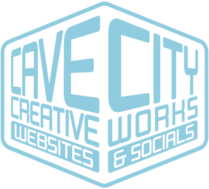When potential customers search for your business on Google, the link they find is their first point of interaction. While linking your profile to a Facebook page might seem convenient, there are several reasons why this approach could hinder your business’s growth and credibility. Here are the key downsides to consider:
1. Limited Branding Control
A dedicated website provides endless possibilities to showcase your brand’s personality through custom designs, colors, and layouts. On Facebook, you’re confined to its standardized format. This lack of control makes it harder to stand out, and your business might come across as less professional or established compared to competitors with custom websites.
2. Perception of Credibility
In the eyes of customers, having a professional website often signals trustworthiness and stability. Directing users to a Facebook page might create the impression that your business is small, informal, or not invested in a long-term presence.
3. Poor SEO Performance
Websites are far more effective for improving search engine rankings. They allow for keyword optimization, metadata customization, and the creation of content tailored to rank higher on Google. Facebook pages, on the other hand, are less likely to rank well for searches beyond your business name, which means you could miss out on organic traffic.
4. Lack of Detailed Analytics
A website empowers you with robust analytics tools like Google Analytics, offering insights into visitor behavior, demographics, and conversion rates. Facebook Insights, while useful for tracking engagement on the platform, falls short of providing the same level of detail about users and their actions outside Facebook.
5. Dependence on Facebook’s Rules
Your Facebook page is ultimately controlled by Facebook. Changes to their algorithms, policies, or platform stability could drastically impact your business’s online presence. In contrast, a website is entirely owned by you, providing greater security and control.
6. No Room for Custom Features
Websites are flexible, allowing you to integrate features such as online booking, e-commerce, customer portals, or unique interactive tools. Facebook doesn’t support this level of customization, limiting your ability to meet specific customer needs.
7. Competitor Distractions
On Facebook, your page is surrounded by ads, recommended posts, and even links to your competitors. This environment can divert attention away from your business. A website keeps users focused solely on your brand.
8. Suboptimal User Experience
Websites can be optimized for a seamless user experience, including faster load times, intuitive navigation, and mobile responsiveness. Facebook, while familiar to many users, can feel cluttered and less professional for business interactions.
9. Fewer Conversion Opportunities
A well-designed website allows you to strategically place calls-to-action (CTAs) such as “Book Now,” “Shop Now,” or “Contact Us,” making it easier to convert visitors into paying customers. Facebook’s engagement tools, while useful, are limited and may not align with your goals.
10. Lack of a Professional Email Domain
A website enables you to create professional email addresses (e.g., [email protected]), which boosts your brand’s credibility. Without a website, you may rely on generic email providers, which can seem less polished to potential customers.
When Facebook Can Be Sufficient
There are a few cases where linking to a Facebook page might suffice:
- For Startups or Budget Constraints: If you’re just starting out and can’t afford a website, Facebook can act as a temporary solution.
- For Social Interaction: Facebook is great for building a community and engaging with your audience, but it shouldn’t replace a website entirely.
The Bottom Line
While a Facebook page is a helpful addition to your online strategy, it should not replace a dedicated website. A professional website boosts your credibility, improves SEO, offers advanced analytics, and provides a tailored user experience—all of which are crucial for long-term business success.
Take Action
If your business doesn’t yet have a website, now is the time to invest in one. Even a simple, well-designed site can make a significant difference in how customers perceive your business. Need help? Reach out to professionals like Cave City Creative Works to get started on a custom website that suits your needs.
Would you like to discuss how to improve your online presence? Let’s connect!



